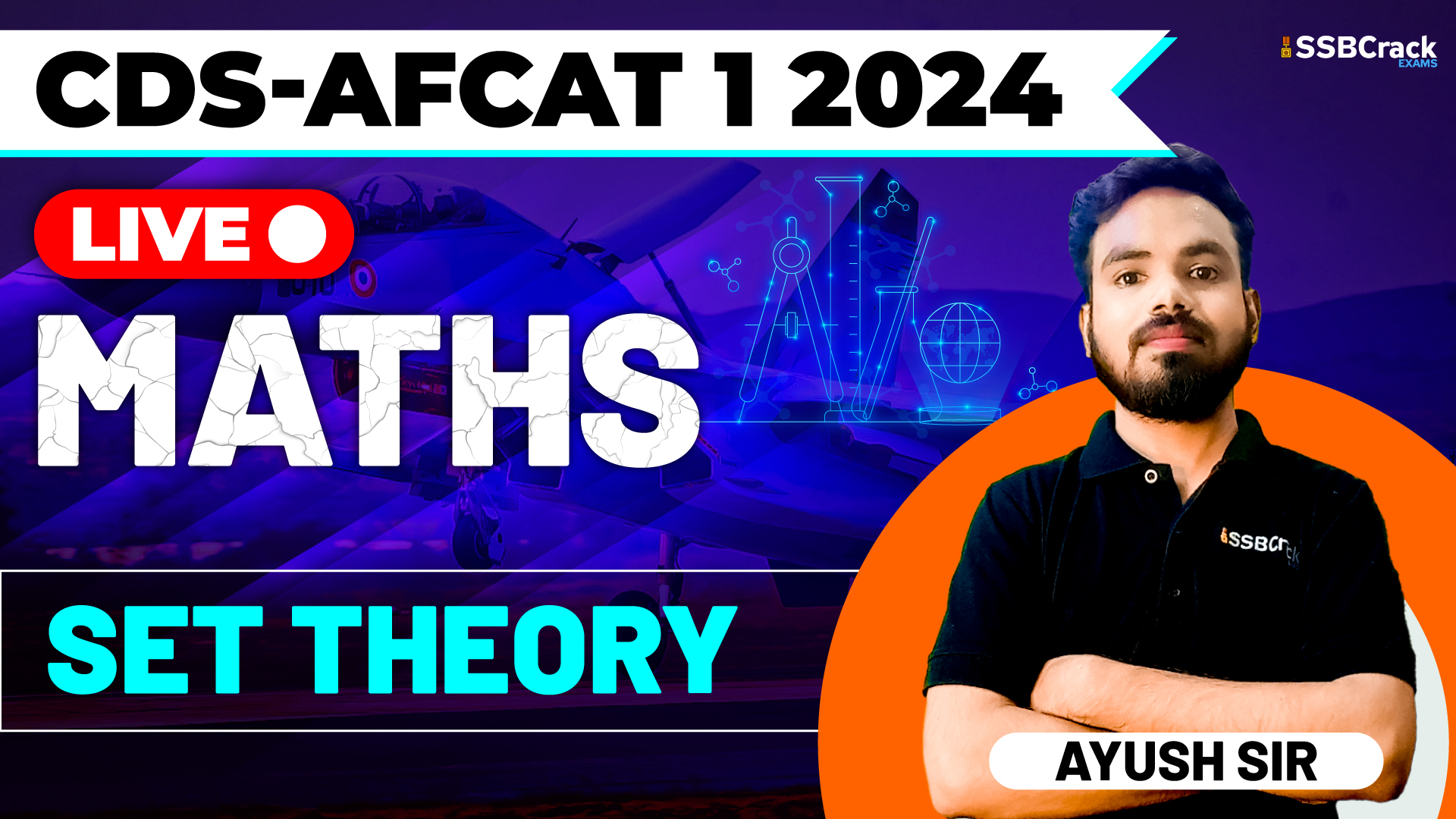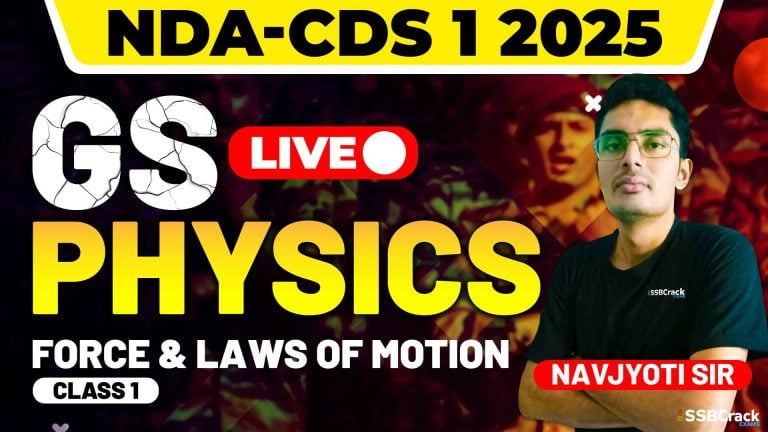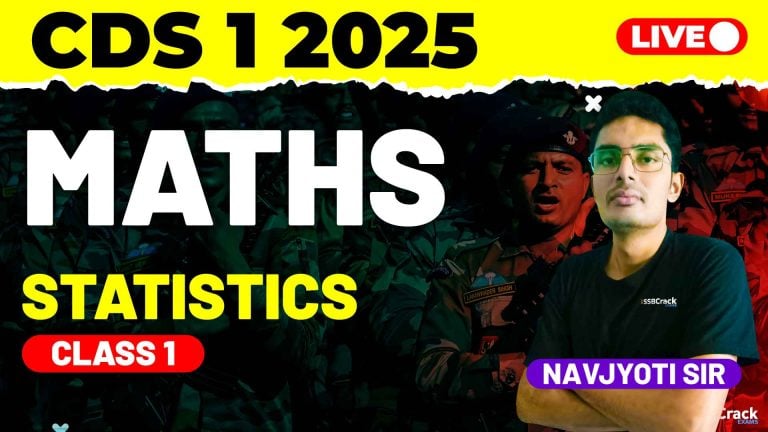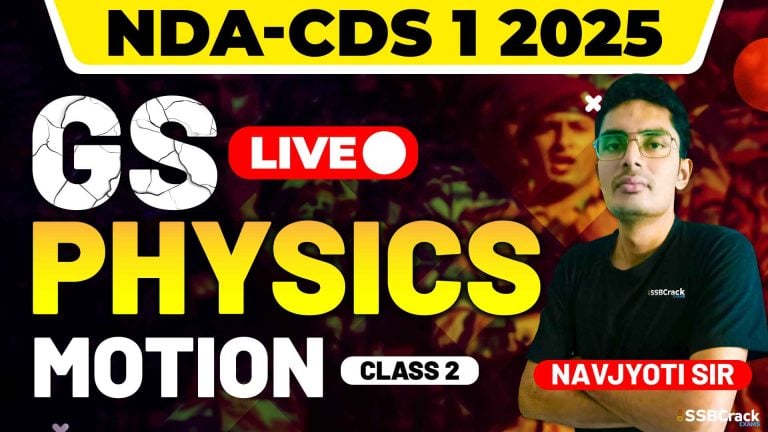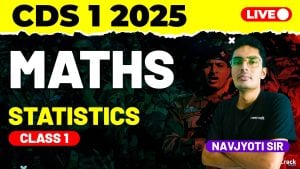In the mathematical tapestry, sets stand as fundamental building blocks, forming the basis for various mathematical concepts and operations. The AFCAT-CDS 1 2024 Exam Math class on Sets and Operations served as a guiding beacon, navigating through the intricacies of set theory. This blog will delve into the key insights gained from the class, unraveling the essential concepts, operations, and identities associated with sets, all accompanied by important questions and their solutions.
Understanding the Essence of Sets: The class commenced with a comprehensive exploration of the foundational aspects of sets, laying the groundwork for a deeper understanding.
- Definition and Types of Sets: The instructor elucidated the definition of sets, providing participants with a conceptual framework for understanding these mathematical entities. Different types of sets, including finite, infinite, equal, and equivalent sets, were explored, offering a broad perspective on the versatility of set theory.
- Set Notations: Participants were introduced to set notations, the symbolic language that facilitates the representation and manipulation of sets. The class emphasized the importance of clear and precise notation in conveying mathematical ideas effectively.
Operations on Sets: As the class progressed, attention turned to the operations that can be performed on sets, enriching participants’ understanding of set manipulation.
- Union of Sets: The Union of Sets, a fundamental operation, was dissected. Practical examples illustrated how the union brings together the elements of two sets, providing a comprehensive view of the combined elements.
- Intersection of Sets: The Intersection of Sets emerged as a powerful operation that isolates the common elements shared by two sets. Participants explored scenarios where the intersection operation becomes particularly valuable, offering insights into the relationships between sets.
- Complement of a Set: The class delved into the concept of the Complement of a Set, showcasing how this operation identifies elements not belonging to a particular set. Through practical examples, participants gained insights into how the complement operation aids in set analysis.
Identity and Null Sets: The discussion then expanded to encompass identity sets and the concept of null sets, shedding light on their role in set theory.
- Identity Sets: Identity sets, sets that, when combined with another set through union or intersection, yield the same set, were explored. Participants grasped the significance of identity sets in understanding the properties of set operations.
- Null Set: The Null Set, or the empty set, took center stage. Participants delved into the unique characteristics of the null set, understanding how it influences set operations and serves as a fundamental element in set theory.
Practical Applications and Problem-Solving Strategies: Throughout the class, theoretical discussions were seamlessly complemented by practical examples, illustrating the real-world applications of set theory.
- Problem-Solving Strategies: The class equipped participants with problem-solving strategies applicable to a variety of scenarios. Emphasis was placed on recognizing patterns, identifying key set properties applicable to specific problem contexts, and adopting a systematic approach to problem-solving.
- Real-world Scenarios: Participants were guided through practical examples that mirrored real-world problem-solving situations. From data analysis to logical reasoning, sets were showcased as invaluable tools for modeling and analyzing a diverse range of phenomena.
Conclusion: The AFCAT-CDS 1 2024 Exam Math class on Sets and Operations wasn’t just a theoretical exploration; it was a strategic journey through the applications and intricacies of set theory. By understanding the foundational aspects, set notations, and operations, participants gained a solid foundation for tackling problems related to sets.
Practical applications and problem-solving strategies ensured that participants weren’t just acquiring theoretical knowledge but were also developing the skills needed to apply set concepts strategically. As candidates continue their preparation journey, the insights gained from this class will serve as a valuable asset. Armed with a thorough understanding of set operations, identities, and practical applications, participants are now better equipped to navigate the set-theoretic challenges of the AFCAT-CDS 1 2024 Exam with confidence and precision. The math of sets, once perceived as complex, has been demystified, thanks to the comprehensive insights and practical knowledge imparted in the AFCAT-CDS 1 2024 Exam Math class on Sets and Operations.

